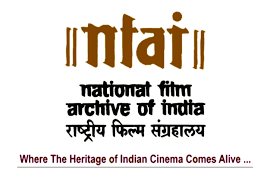 W
WFilm preservation, or film restoration, describes a series of ongoing efforts among film historians, archivists, museums, cinematheques, and non-profit organizations to rescue decaying film stock and preserve the images they contain. In the widest sense, preservation assures that a movie will continue to exist in as close to its original form as possible.
 W
WThe Cinémathèque québécoise is a film conservatory in Montreal, Quebec, Canada. Its purpose is to preserve, document, film and television footage and related documents and artifacts for future use by the public. The Cinémathèque's collections include over 35,000 films from all eras and countries, 25,000 television programmes, 28,000 posters, 600,000 photos, 2,000 pieces of historical equipment, 15,000 scripts and production documents, 45,000 books, 3,000 magazine titles, thousands of files as well as objects, props and costumes. The conservatory also includes a film theatre which screens rarely seen film and video.
 W
WThe Criterion Collection, Inc. is an American home video distribution company which focuses on licensing "important classic and contemporary films" and selling them to film aficionados. Criterion has helped to standardize characteristics of home video such as film restoration, using the letterbox format for widescreen films, and adding bonus features and commentary tracks.
 W
WDawson City: Frozen Time is a 2016 American documentary film written, edited, and directed by Bill Morrison, produced by Morrison and Madeleine Molyneaux. First screened in the Orizzonti competition section at the 73rd Venice International Film Festival, the film details the history of remote Yukon town Dawson City, from the Klondike Gold Rush to the 1978 Dawson Film Find: a discovery of 533 nitrate reels containing numerous lost films. The recovered silent films, buried beneath a hockey rink in 1929, included shorts, features, and newsreel footage of various events, such as the 1919 World Series.
 W
WThe Film Detective is an internet television service and vintage film archive based in Rockport, Massachusetts. Programming for the service consists of classic feature films as well as some classic television programs. Many of the titles shown are public domain and have been restored by The Film Detective.
 W
WThe International Federation of Film Archives was founded in Paris in 1938 by the Cinémathèque Française, the Reichsfilmarchiv in Berlin, the British Film Institute and the Museum of Modern Art in New York City.
 W
WLibrary and Archives Canada is a federal institution tasked with acquiring, preserving and making Canada's documentary heritage accessible. It is the fourth-largest library in the world. LAC reports to Parliament through Steven Guilbeault, the Minister of Canadian Heritage since November 20, 2019.
 W
WThe Lunar Orbiter Image Recovery Project (LOIRP) is a project funded by NASA, SkyCorp, SpaceRef Interactive, and private individuals to digitize the original analog data tapes from the five Lunar Orbiter spacecraft that were sent to the Moon in 1966 and 1967.
 W
WThe National Audiovisual Conservation Center, also known as the Packard Campus for Audio-Visual Conservation, is the Library of Congress's audiovisual archive located inside Mount Pony in Culpeper, Virginia.
 W
WThe National Film Archive of India (NFA) was established as a media unit of the Ministry of Information and Broadcasting in February 1964. It is a member of the International Federation of Film Archives.
 W
WThe National Film Registry (NFR) is the United States National Film Preservation Board's (NFPB) selection of films which are believed to be deserving of preservation. The NFPB, established by the National Film Preservation Act of 1988, was reauthorized by acts of Congress in 1992, 1996, 2005, and again in October 2008. The NFPB's mission, to which the NFR contributes, is to ensure the survival, conservation, and increased public availability of America's film heritage. The 1996 law also created the non-profit National Film Preservation Foundation which, although affiliated with the NFPB, raises money from the private sector.
 W
WPaper prints of films were an early mechanism to establish the copyright of motion pictures by depositing them with the Library of Congress. Thomas Alva Edison’s company was first to register each frame of motion-picture film onto a positive paper print, in 1893. The Library of Congress processed and cataloged each of the films as one photograph, accepting thousands of paper prints of films over a twenty-year period.
 W
WTalking Pictures TV (TPTV) is a British free-to-air vintage-film and nostalgia television channel. It was launched on 26 May 2015 on Sky channel 343, but later also became available on Freeview, Freesat, and Virgin Media. It is on air for 24 hours a day and features mainly older British films, both classics and B-films, but the schedule also includes some American films, straight-to-video programmes, cinema shorts, and period home movies of British locations.
 W
WThese Amazing Shadows is a 2011 documentary film which tells the history and importance of the National Film Registry, a roll call of American cinema treasures that reflects the diversity of film, and indeed the American experience itself.
 W
WTurner Classic Movies (TCM) is an American movie-oriented pay-TV network operated by Warner Bros. Entertainment, a subsidiary of AT&T's WarnerMedia. Launched in 1994, TCM is headquartered at Turner's Techwood broadcasting campus in the Midtown business district of Atlanta, Georgia.
 W
WWhen the World was Wide is a 1978 American documentary film that presents pioneering travelogue footage of exotic and far-flung locales taken between 1905 and 1927. It samples archival footage reaching back to "the last days of the Manchu Dynasty" in China and includes the first footage taken in Japan (1909) and Tibet (1919) and the first ever of a Dalai Lama.